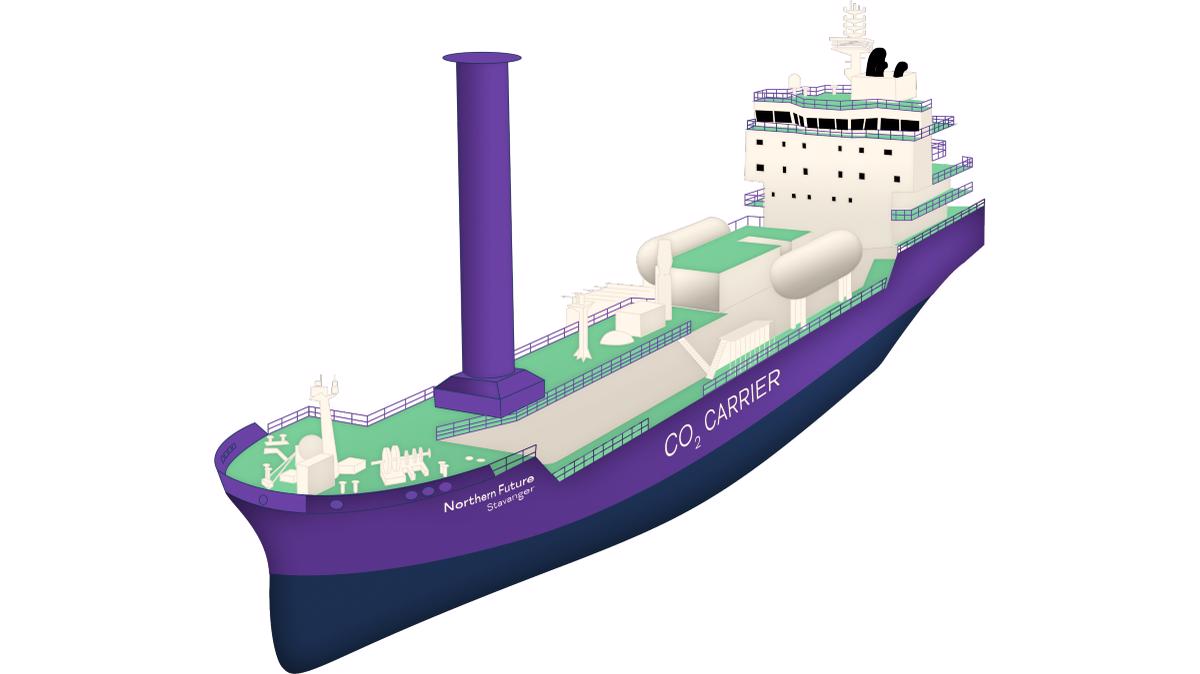Northern Lights orders its third LNG-fuelled LCO2 carrier
An increase in demand for "cross-border CO2 storage and transport" prompted Northern Lights to order its third LCO2 carrier, the company's managing director, Børre Jacobsen said.
 PHOTO: Model of Northern Lights' liquified CO2 carriers. Northern Lights
PHOTO: Model of Northern Lights' liquified CO2 carriers. Northern Lights
Northern Lights is a carbon capture and storage joint venture between oil majors Equinor, Shell and TotalEnergies.
The liquefied carbon dioxide (LCO2) carrier will be powered by LNG with wind-assisted propulsion system, Northern Lights said.
The vessel will be equipped with two cargo tanks and have a total storage capacity of 7,500 cbm – same as its sister vessels. China's Dalian Shipbuilding Offshore is building all three vessels, with the first two vessels scheduled to be delivered next year.
The three vessels will transport LCO2 from industrial emitters in Norway to Northern Lights' receiving terminal in Øygarden, an island town in Norway. Upon receiving CO2, the gas will be transported by pipeline to an offshore reservoir for permanent storage under the seabed at a depth of 2,600 metres.
Northern Lights will also ship CO2 captured from Yara's fertiliser and ammonia plant in the Netherlands to Norway.
Growing market for CO2 transportation
Carbon capture technology is becoming increasingly popular in various industries, including shipping, to reduce emissions. Several companies are working on various ways of solving the transport question.
Northern Lights is developing cross-border CO2 transport and storage infrastructure to meet Europe's growing carbon capture and storage demand.
Besides Northern Lights, a Japanese alliance is also working to assess the logistics and costs of transporting LCO2 on vessels for a carbon capture and storage project off Kyushu in southwest Japan.
Meanwhile, Malaysia's MISC and South Korea's Samsung Heavy Industries’ (SHI) prototype of a floating carbon storage and injection unit has received a nod from DNV. It will have a CO2 storage capacity of 100,000 cbm (187,000 mt) and a CO2 injection capacity of around 5 million mt/year.
SHI is also developing other carbon capture and storage concepts, including CO2 carriers.
By Konica Bhatt
Please get in touch with comments or additional info to news@engine.online






